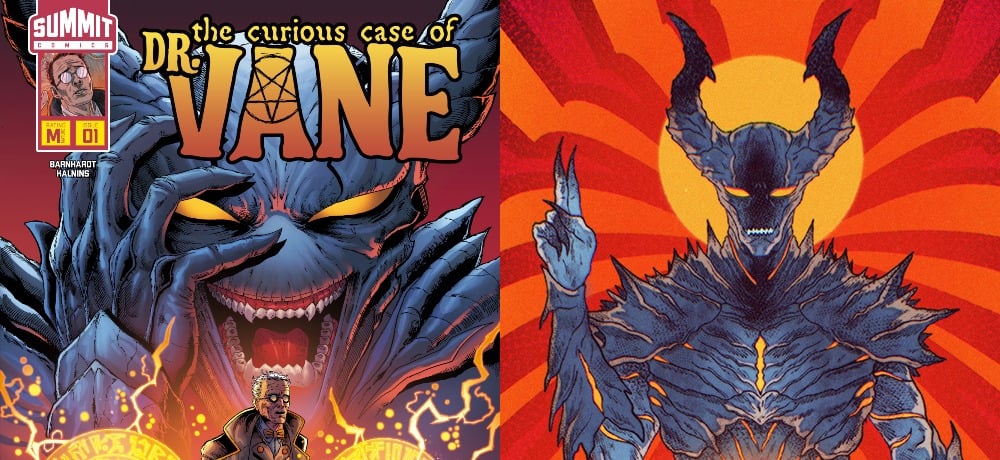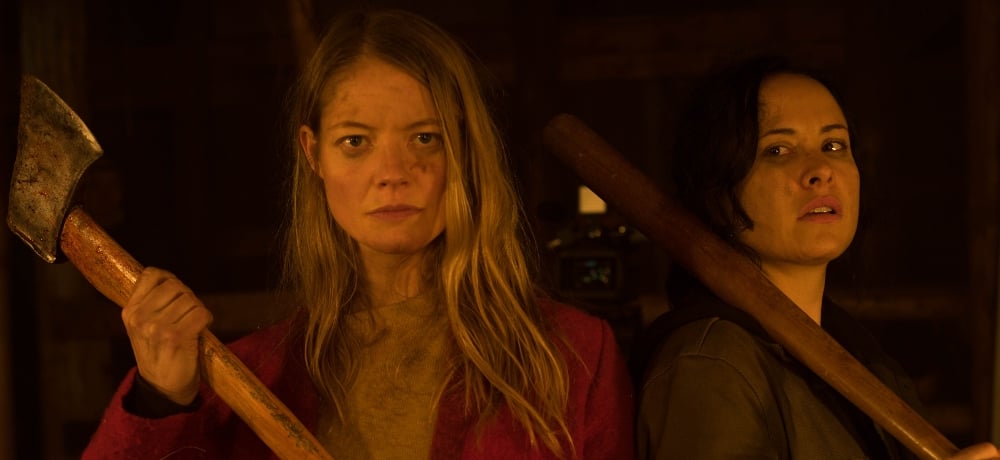






“Culling the herd” is something I’ve heard many times, but never gave it much thought until having watched Pat Mills’ latest film, The Retreat. It is used as a reference to animals, but separating or killing “inferior” human beings to reduce their numbers or to rid a group of their “undesirable” traits has been happening for centuries. It’s still happening to minorities around the world. Alyson Richards’ screenplay uses deer as a metaphor for the queer community. As one character recalls her experiences of hunting as a child to “cull the problem deer,” the other character asks, “Were they a problem? The deer?” The response: “Depends on who you ask.” It’s a simple but poignant phrase that reminds the audience that, in this case, homophobia is still ever-present. And while it may often feel safer in big cities surrounded by a larger number of people like you, the film makes us imagine what it must be like to grow up gay outside those Pride-month-celebrating city lines. Horror movies have always dealt with otherness in some way, and in its early days, if you wanted to be represented, you were more often than not the villain. The Retreat seeks to reframe how lesbians are portrayed in the horror genre, and while it succeeds on that front, it inadvertently shows how the bodies of certain members of the LGBTQ community still have a long way to go from being treated as disposable.
This Canadian film follows Renee (Tommie-Amber Pirie) and Valerie (Sarah Allen), a couple at a crossroads in their relationship. (And what better way to bring them together than a classic kill or be killed scenario, right?) Leaving the city to spend the weekend with their friends at what’s advertised as an oasis, they arrive at a remote cabin to find that their friends are nowhere to be found, despite their car parked outside. What’s supposed to be a cozy and relaxing retreat just turns into another reminder of why staying in a cabin in the woods is probably not the best idea. Soon, they feel they’re being followed; that they’re being watched. And after going for a walk around the property, they come back to their car stolen and phones missing. Then comes the sound of the creaking footsteps of an intruder. At first, Renee and Valerie do everything characters in horror films do: they run, hide, and separate. As cinematographer David Schuurman pans over the surrounding landscape, the audience sees the full scale of this dark and sprawling woods and begins to feel the characters’ fear—of how easy it would be to get lost and how exposed both women are. They’re both at the mercy of their surroundings and the homophobic militant extremists who are out to cull them from the herd.
In the film’s press notes, Richards explains that a big factor for writing The Retreat is the feeling of frustration created by the representation of lesbian characters in media. An attempt to bury the “bury your gays” trope, if you will. She succeeds in that. After watching lesbian and bi women get killed onscreen, especially on television, over and over again, the image of a lesbian holding a bat and giving it to these extremists is so satisfying. The many brutal and bloody moments in the film recall the reality that many queer people around the world face every day. But as much as this couple is met with brutality, they hand it tenfold. They’re badass, and at the same time, films like these also get rid of the exhausted damsel in distress trope. Slashers are one of the most popular and celebrated sub-genres of horror, but they take on a different significance when sexuality is at play.
The word “retreat” takes on a different meaning here as these city girls find themselves now uncomfortable in the film’s rural setting. It’s like going to visit your small-town family and having to retreat back into the closet—being much more conscious of everything you say and do in order to avoid any uneasy stares. While the film’s villains (which include Aaron Ashmore) are pretty forgettable, they do aid in creating this contrasting and uncomfortable atmosphere. I also commend Richards for allowing the audience to get to know the central couple, learn about their relationship, and give them real personalities instead of just jumping right into the action.
While it’s a solid slasher and achieves what it set out to do for lesbian representation, The Retreat isn’t revelatory. A couple years ago, we had a lesbian couple trying to survive in a post-apocalyptic world in Riot Girls, and one of the most celebrated post-apocalyptic video game series, The Last of Us, is led by a lesbian protagonist. These stories are powerful, important, and we could never have too many, but it’s only a small part of a bigger whole. Unfortunately, how the film treats two minor gay characters says a lot about how gay men are treated in society and in the media is still in many ways the same and how there’s still a fight for many to be afforded the same victory as Renee and Valerie. The film speaks of toxic masculinity’s effects on gay men, but their narrative could have easily been treated differently. It feels hypocritical to advocate for representation while only being selective. But as we live in a society that’s more open than ever before, there’s always some kind of barrier or legislation being put against us—one step forward, two steps back. It’s time to bury that.
Movie Score: 3/5